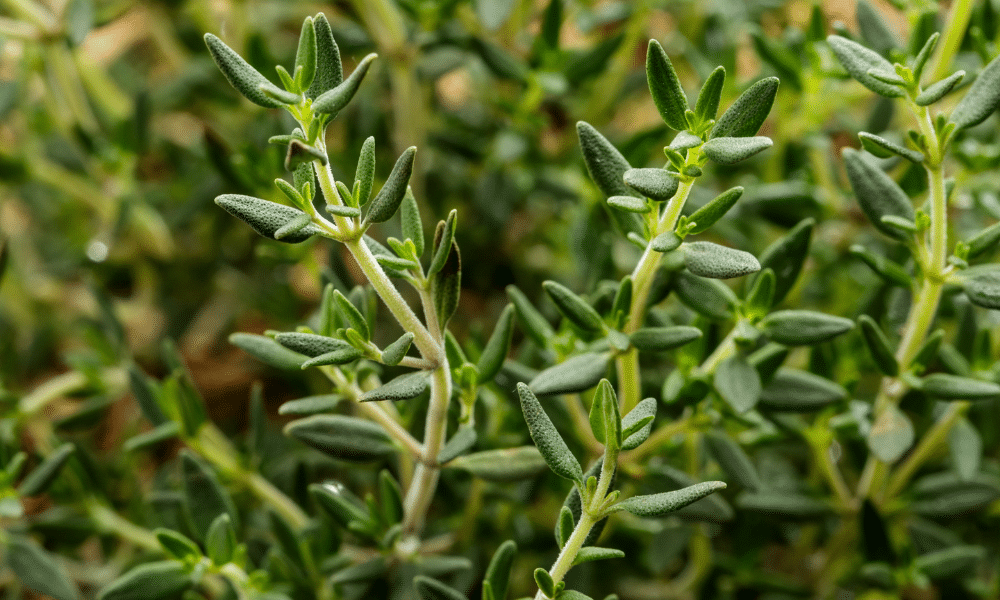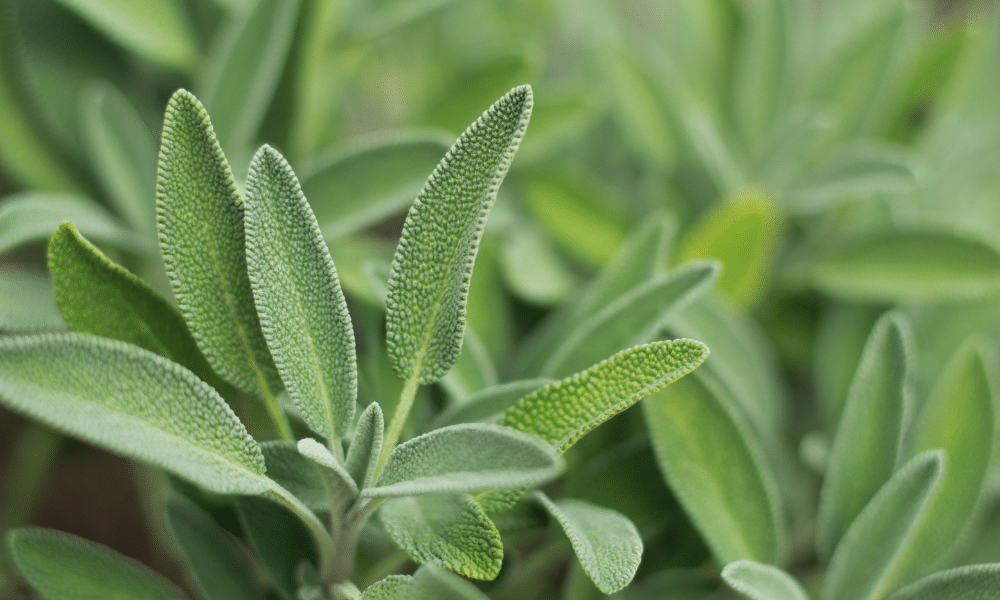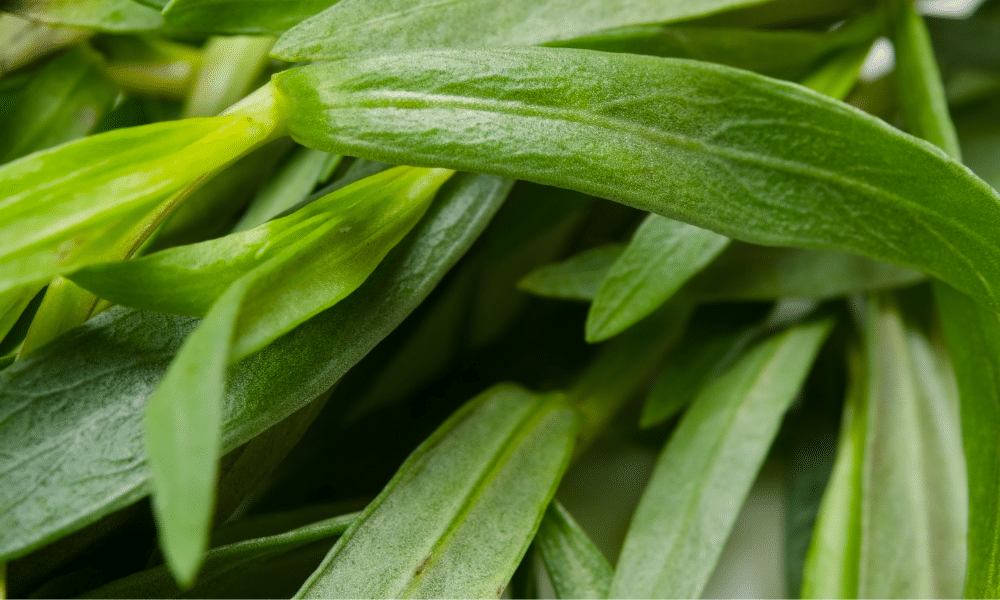Rosemary is on the earthier side of the herb scale and is a key ingredient in many Mediterranean dishes.
Its complex, grounded flavours can effectively balance out many rich types of meat. That is why it is often used in stuffing or meat marinades, especially when paired with lamb or beef.
The unique flavours of rosemary prefer to release over a longer period, so rosemary is often the herb of choice when it comes to roasting meats and vegetables.
What if you don’t have fresh or dry rosemary to hand but you still want to push your roasted dish to that next level?
Our 5 Substitutes for Rosemary
It is the sharp, hard-hitting flavours that make rosemary a herb of luxury. Though rosemary is sweet, it has powerful bitter undertones that strike the perfect balance both for the herb and for your rich meat dishes.
Here are our top 5 substitutes for rosemary:
1) Thyme
Though thyme is well known for its earthy taste, it does tend to be more on the floral side than rosemary. Some don’t like the floral tones of thyme. However, it makes for a great rosemary substitute when you are cooking a fresher, lighter dish.
Thyme is also a lot milder than rosemary. To feel its full effect when cooking a rich meat dish, you should double the amount of thyme that a recipe calls for.
Different Varieties of Thyme
If you would prefer to amplify the freshness of thyme, then you could try out lemon thyme.
Lemon thyme has some citrusy tones that make it the perfect pairing for chicken and fish. Or to balance out hearty dishes that are too rich for your preferences.

2) Sage
When using sage, you must only use half the amount. Sage is a very overwhelming herb if used in excess, so only add a little to your dish at a time.
The flavours of sage mirror that of rosemary. It is a little bit peppery, kind of minty and mildly citrusy. These may all be flavours of rosemary, but sage carries them in slightly different ways to rosemary, meaning its final flavour will be just a little off.
Allow Sage Time to Release Its Flavours
Sage is not a delicate herb. Adding it into your dish early in your dishes’ cooking time will allow your dish to feel the full effects of the herb’s complex flavours. The longer you can leave sage to cook, the better your dish will taste.

3) Tarragon
Much like rosemary, tarragon has a balance of sweet and bitter flavours. This means that it can be used to elevate any dish.
Though balanced, there is one distinct flavour that sets tarragon apart from rosemary. That is the taste of liquorice.
It is not a strong enough flavour to overpower a dish like aniseed, but tarragon’s liquorice hints are an acquired taste.
Make Your Own Herb Mixture
If you are not a fan of liquorice, then you can mix tarragon with thyme or sage to weaken that distinct flavour. This will make the herb more tolerable.

4) Italian Seasoning
As a mix that already has rosemary in it, it is no surprise that Italian seasoning can be used as a substitute for rosemary.
Though the flavour of rosemary in Italian seasoning can be altered due to the other herbs included in the mix, including basil, thyme, oregano, and marjoram.
So many herbs create a complex flavour but will not allow the rosemary to shine by itself. Still, you will be able to get the balance of both bitter and sweet from all the different herbs.
Check the Ingredient
The ingredients listed above are commonly used in Italian seasoning but are not guaranteed to be included in every Italian seasoning product. Every brand will have its own unique mix, so only buy the seasoning that includes rosemary to be able to taste it in your meal.
5) Bay Leaf
One of the best things about rosemary is that its flavour slowly releases, making your whole dish taste delicious by the time you are ready to serve it.
Bay leaves work in the same way, preferring slow cooking soups and stews that build up flavour the longer they are left to cook.
Rather than offering much flavour themselves, bay leaves are mostly used to pull forth the individual flavours in your dish. This elevates even the most basic flavours in your dish and can balance out the richer ingredients as rosemary does.
Remember to Remove the Leaf
Unlike rosemary which can be chopped and eaten within your meal, bay leaves are not supposed to be eaten. Their leaves are thick and leathery and are not at all pleasant to eat.
That is why you should remove the leaf before you serve the dish so that no one accidentally eats it.

Other Substitutes for Rosemary
The substitutes listed above are ideal if you enjoy cooking and have an extensive herb collection.
However, if your pantry is a little more basic, here are some commonly used herbs that can also substitute rosemary:
- Basil – Fresh basil is significantly sweeter than rosemary but works fine in quick meat sauces for when your meats are a little too overwhelming
- Parsley – A milder herb than rosemary, parsley has similar flavours to rosemary but is weaker
- Caraway Seeds – Often used alongside rosemary, caraway seeds will work in place of rosemary as a last resort. Just do not use in excess due to their sharp anise flavour
Summary
Rosemary is a great herb for when you want to push your rich, meat-heavy dish to the next level. But unless you are an avid chef, you probably won’t have rosemary in your cooking arsenal.
Instead, use other common herbs like thyme or a herb mixes to make your dish taste more complex.
